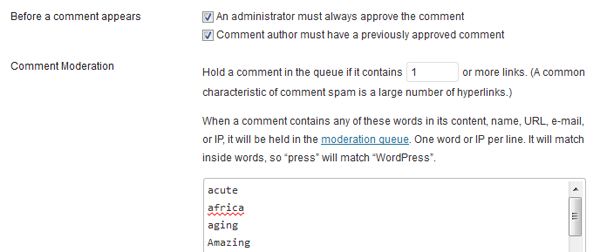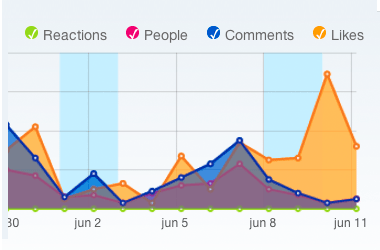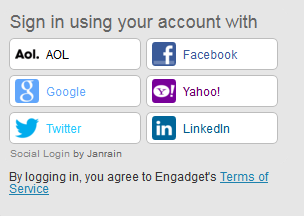Comment systems provide a straightforward and familiar option to build a community around what you are promoting. Whether you employ a comment system for product reviews or for feedback on blog posts, allowing users to provide you feedback and discuss your site content with other users can foster a rich community and add value for your business.
A good comment system is built with many features and picking the perfect one to your site can seem difficult. Listed below are core features it’s essential consider.
Appearance and Usability
The audience of any comment system is your traffic. The system’s appearance and value is vital. Comment systems can be seamlessly integrated into your site and feature a visible appearance that matches along with your theme. Commenting tools have to be intuitive and simple to take advantage of without overwhelming the user.
Comment Moderation and Spam Filtering
As the administrator, you should be ready to moderate offensive or inappropriate comments and filter spam messages. Many comment systems use Akismet to filter spam, allowing you to spotlight building a community around your content. Spam filtering options let you automatically detect and delete unwanted comments while identifying suspicious comments for individual moderation.
Even comments that aren’t automatically generated or aren’t spam should still need moderation. An example is insults among commenters, and anger. Discover a service that makes it easy to moderate comments in a queue before they’re published.

Example of WordPress’s built-in comment moderation and spam filtering.
SEO and Analytics
Comments have something to offer for search engine optimization. Fresh comments around relevant content can be crawled by search engines to improve your site’s SEO. Some comment systems optimize for SEO out of the box.
One comment system, Disqus, also comes with built-in analytics to monitor top commenters, most popular subjects, and login time for your site users. These analytic tools can provide valuable information about what is and isn’t working on your site. A basic version of Disqus is free; more advanced versions are not.

Example of comment analytics from Disqus.
Sign-in Options, and Profiles
Commenter authentication not only cuts down on the need for spam filters and moderation, it also helps build a lively community of familiar users. Many comment systems provide different ways users can authenticate themselves. Some systems allow users to create their own profiles on your site while others provide universal login access across any site using the same comment system.
Social media authentication is another way comment systems validate users. Instead of requiring new commenters to register on your site and create a profile, which could deter some from commenting at all, allowing users to comment using their social media profiles is a fast and reliable way to authenticate commenters.

Engadget uses the Livefyre comment platform, which integrates with Jainrain for social media sign-in.
Lastly, some commenters may not wish to create a profile on your site or provide social media profile information. Consider how you wish to manage guest or anonymous posting when choosing a comment system. Will you require guest commenters to provide you with an email address? Will you individually moderate all guest comments?
Mobile Friendly
The growing popularity of mobile browsing means every aspect of your site should be mobile friendly. Comment systems are no different. Ensure that any comment system you choose not only displays well but also is easy to use on mobile devices. Comment system Disqus even offers a standalone app for $2.99 that allow users to comment on your site with a tailor-made mobile interface.
Community Building
One of the benefits of allowing comments is the community you can build around your content. Many comment systems come with additional tools that can help build a stronger community. Once users are authenticated through a custom or social media profile, information about that user can be saved and shared with other users. IntenseDebate (from Automattic, the makers of WordPress) and Livefyre provide user reputations and activity for other users to see. IntenseDebate and Disqus also give the option to allow users to help moderate comments. IntenseDebate and Livefyre offer free and premium versions.
Another popular commenting feature that builds community is threaded commenting, which allows users to respond not only to your site content, but to other users’ comments as well. This can foster communication between users and add to the overall sense of community around your site content.

Example of nested comments.
Social Integration
Social sharing and discovery in-builtto your commenting system allow your users to spread your content with their social connections and lets others stumble across your site. Most comment systems include options to share comments on Facebook and Twitter. Disqus and Livefyre even let you tag Facebook and Twitter friends with @mention. IntenseDebate allows comments to be simultaneously posted as tweets.
Comment Formatting
Sometimes unformatted text isn’t enough in a comment. Comment systems provide a range of ways to comment on content. Consider what kind of comments you want to allow in your site. Will you allow rich text formatting? Will users be able to embed photos and videos into their comments? Different comment systems provide varying support for comment content and formatting.
Administrative Console
The admin console or dashboard is the section of the comment system where you control its look, feel, and settings. Every comment system will have a slightly different dashboard, though you are likely to notice similarities throughout all of them. Find a comment system with an admin console that will be easy for you to exploit.